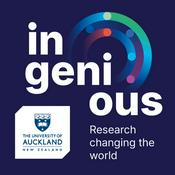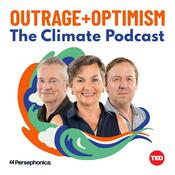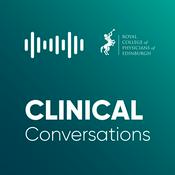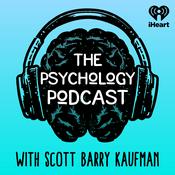92 episodes
- In neurodegenerative diseases, about 99% are associated with protein molecules aggregating together. In recent years, super-resolution microscopy has revolutionised how scientists view these minute molecules aggregating, along with other cellular events.
QBI’s Professor Fred Meunier advocated that The University of Queensland invest in super-resolution microscopy; this had paid dividends, revealing fascinating discoveries about the nanoworld. Professor Meunier and his lab can now observe molecules moving in space and time and are developing new techniques to better understand how our cells help us treat brain disorders and diseases.
In this dynamic conversation, Professor Fred Meunier and Anusha Malapaka discuss
How super-resolution microscopy works
The different types of super-resolution microscopy
What super-resolution microscopy allows us to see
AI’s impact on future super-resolution microscopy technology
Related resources
Unravelling the mysteries of the presynapse with super-resolution microscopy
Nanoscale spatiotemporal cluster analysis of expressed and endogenous proteins - Despite its everyday use in hospitals, scientists have yet to fully understand how general anaesthesia works. Professor Bruno van Swinderen began studying general anaesthesia using the tiny worm C.elegans in the 1990s. Now in his lab at UQ’s Queensland Brain Institute, Bruno and Dr Drew Cylinder are studying general anaesthesia reversal agents, which could shorten patients’ recovery time and potentially reduce the risk of post-operative complications.
In this thought-provoking discussion, Bruno and Drew explore:
How party drugs led to general anaesthetics
The difference between local, regional, and general anaesthetics
General anaesthesia’s effect on the brain
Improving anaesthesia and the role of reversal agents
Sleep, consciousness and anaesthesia
Related resources
Corals and fruit flies aid understanding of anaesthesia - Mitochondria are known as the powerhouses of our cells, but research is revealing their wide role in brain health and links to rare genetic diseases that affect the brain. At UQ’s Queensland Brain Institute, Professor Steven Zuryn, a leading researcher in this field, and PhD student Tessa Onraet are investigating how keeping mitochondria healthy may help brain function. By studying tiny but experimentally powerful worms, C. elegans, their discoveries may help us understand more about the ageing brain and potential treatments for neurodegenerative diseases.
In this engaging conversation, Steven and Tessa discuss:
Mitochondria’s role in evolution
The unique DNA inside mitochondria
Why tiny worms called C.elegans are useful for studying mitochondria
How our brain cells react to damaged mitochondria
The future of mitochondria research
Related papers and resources
Digging deep into distinctly different DNA
C. elegans as a model to study mitochondrial biology and disease - Exercise has many health benefits, including for our brains. Recent discoveries at UQ’s Queensland Brain Institute offer new clues about the mechanisms that generate exercise’s positive effects. In their labs, Dr Tara Walker and Professor Jana Vukovic investigate how exercise enhances cognitive capacity from different angles. They study various mechanisms that can improve learning, memory, and neurogenesis. They are both on the cusp of clinical trials to begin translating their findings into practice.
In this captivating conversation, Tara and Jana explore:
How exercise impacts the brain
The process of neurogenesis
Whether we can replicate the effects of exercise
How exercise affects the brain’s primary immune cells (microglia)
Why they want to see exercise prescribed
Related papers and resources
Exercise can help slow cognitive decline
What the evidence tells us about exercise and healthy brain ageing
Platelets can replicate the benefits of exercise in the brain
UQ research reveals exercise brain boost can last for years - Virtual reality (VR) is changing how scientists study memory, and it involves exploring virtual mazes. At UQ’s Queensland Brain Institute, cognitive neuroscience leader Professor Jason Mattingley, PhD student Richard Ronayne, and research assistant Jayce Rushton are conducting VR experiments that they hope will be adopted in clinical settings to test people’s navigational and spatial memory.
In part two of this two-part series, our guests discuss:
The challenge of using VR when conducting experiments
Participants’ reactions to trying the VR memory test
Building a virtual maze to test memory
How VR can be used in a clinical setting
Why VR could help people struggling with memory loss
Related papers and resources
Interpreting memory
More Science podcasts
Trending Science podcasts
About A Grey Matter
A Grey Matter is for anyone who has ever wondered how we think, feel, reason and move. The Queensland Brain Institute's neuroscience podcast unlocks the wonders of the brain – the complex and mysterious core of who we are and what makes us human. QBI researchers, at The University of Queensland, strive to understand the development, organisation and function of the brain in health and disease. www.qbi.uq.edu.au
Podcast websiteListen to A Grey Matter, All In The Mind and many other podcasts from around the world with the radio.net app
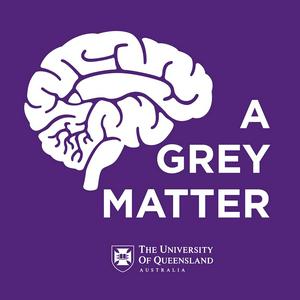
Get the free radio.net app
- Stations and podcasts to bookmark
- Stream via Wi-Fi or Bluetooth
- Supports Carplay & Android Auto
- Many other app features
Get the free radio.net app
- Stations and podcasts to bookmark
- Stream via Wi-Fi or Bluetooth
- Supports Carplay & Android Auto
- Many other app features


A Grey Matter
Scan code,
download the app,
start listening.
download the app,
start listening.












